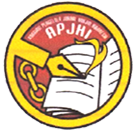The Urgency Of Green Ship Recycling Methods And Its Regulations In Indonesia From The International Law Perspective
DOI:
https://doi.org/10.29303/ulrev.v6i2.236Keywords:
Ship, Ship Recycling, Green Ship RecyclingAbstract
One of the critical problems for ships utilization is the limited operative life which affect its efficiency. Therefore, ship owners tend to send these ships for recycling. On the one hand, ship recycling industry can absorb labour and become a source of state revenue. Nevertheless, these activities significantly affect the preservation of the marine environment if not appropriately managed. Marine waste pollution is an essential issue in global context. Regrettably, as a country with a massive shipping intensity and geographically a strategic location, Indonesia does not have a comprehensive national policy regarding recycling ships weighing for 500 GT or more. The government allows conventional ship recycling methods that are not environmentally friendly and sustainably, which contradicts Indonesia's commitment to supporting the Sustainable Development Goals (SDGs). Thus, Indonesia is vulnerable to claims regarding poor pollution management due to ship dismantling activities. The claim could be addressed to the state’s responsibility, which refered to international instruments such as conventions and guidelines in terms of preventing pollution to neighboring countries originating from ship breaking and dismantling activities that lack regulation and measures. This article argues the urgency to reform the current national ship recycling regime in the future to apply a greener method by alluding to international general principles, customary and jurisprudence.
References
Carey, T. (2011). The Hongkong International Convention for the Safe and Environmentally Sound Recycling Ships: Progress? Lund University.
Duvic-Paoli, L.-A. (2018). Prevention and Protection of the Environment. In The Prevention Principle in International Environmental Law: Vol. II (hal. 234–259). Cambridge University Press. https://doi.org/10.1017/9781108553728.011
Duvic-Paoli, L.-A. (2018b). Prevention in the Jurisprudence. In The Prevention Principle in International Environmental Law (hal. 137–173). https://doi.org/10.1017/9781108553728.007
Fadli, M., Muklish, & Lutfi, M. (2016). Hukum dan Kebijakan Lingkungan. UB Press.
International Law and Policy Institute. (2016). Shipbreaking Practices in Bangladesh, India and Pakistan.
INTERNATIONAL LAW COMMISSION. (2015). Yearbook of the International Law Commission 2015,.: Vol. II (Nomor Part 2).
Leib, L. H. (2011). Theorisation Of The Various Human Rights Approaches To Environmental Issues. In Human Rights And The Environment: Philosophical, Theoretical And Legal Perspectives. Brill.
Manik, K. E. S. (2018). Pengelolaan Lingkungan Hidup. Kencana.
Mulyono, M., Firdaus, R., Alka, C. M., & Hamdani. (2018). Sumberdaya Hayati Laut Indonesia: Sebuah Pengantar Sumber Daya Hayati Laut Indonesia,. STP Press.
Newman, J. A., Varner, G., & Linquist, S. (2017). The Precautionary Principle. In Defending Biodiversity: Environmental Science and Ethics (hal. 97–131). Cambridge University Press. https://doi.org/10.1017/9781139024105.005
Reynolds, J. L. (2019). International Compensation and Liability. In The Governance of Solar Geoengineering: Managing Climate Change in the Anthropocene (hal. 178–195). Cambridge University Pres. https://doi.org/10.1017/9781316676790.012.
Tanaka, Y. (2017b). Land-Based Marine Pollution. In A. Nollkaemper, I. Plakokefalos, & J. Schechinger (Ed.), The Practice of Shared Responsibility in International Law (hal. 294–315). Cambridge University Pres. https://doi.org/10.1017/9781316227480.013.
Vance, T., Fileman, T., & de Mora, S. (2021). Shipping, Ships and the Environment. In Environmental Impact of Ships (hal. 1–10). Cambridge University Press. https://doi.org/10.1017/9781108381598.002
Article
Akriananta, W., & Suastika, K. (2017). Pengembangan Galangan Daur-Ulang Kapal Ramah Lingkungan Di Indonesia Menggunakan Metode Anp: Studi Kasus Galangan Daur-Ulang Kapal Di Kamal, Madura. Jurnal Kelautan Nasional, 12(1), 33. https://doi.org/10.15578/jkn.v12i1.6196
Alam, S., & Faruque, A. (2014). Legal regulation of the shipbreaking industry in Bangladesh: The international regulatory framework and domestic implementation challenges. Marine Policy, 47, 46–56. https://doi.org/10.1016/j.marpol.2014.01.022
Ambec, S., & Ehlers, L. (2016). Regulation via the Polluter-pays Principle. Economic Journal, 126(593), 884–906. https://doi.org/10.1111/ecoj.12184
Amos, R., & Lydgate, E. (2020). Trade, transboundary impacts and the implementation of SDG 12. Sustainability Science, 15(6), 1699–1710. https://doi.org/10.1007/s11625-019-00713-9
Argüello Moncayo, G. (2016). International law on ship recycling and its interface with EU law. Marine Pollution Bulletin, 109(1), 301–309. https://doi.org/10.1016/j.marpolbul.2016.05.065
Aror, A., & Kalogianni, A. (2020). Ship Recycling: Guidelines for devising a strategy in compliance with complex regulatory framework. Standard Club Bulletin.
Comission, E. (2019). Sustainable mobility.
Commission of the European Communities. (2000). Communication from the Commission on the Precautionary Principle. (1–28). https://op.europa.eu/en/publication-detail/-/publication/21676661-a79f-4153-b984-aeb28f07c80a/language-en
de Souza Ribeiro, N., Ocampo, E. S., & Pereira, N. N. (2019). Considerations Regarding Ship Recycling. In A. Vega Sáenz, N. N. Pereira, L. M. Carral Couce, & J. A. Fraguela Formoso (Ed.), Proceedings of the 25th Pan-American Conference of Naval Engineering---COPINAVAL (hal. 327–336). Springer International Publishing.
Dinneen, N. (2013). Precautionary discourse. Politics and the life sciences : the journal of the Association for Politics and the Life Sciences, 32(1), 2–21. https://doi.org/10.2990/32_1_2
Fariya, S. (2018). Analisa Teknis Pembangunan Ship Recycling Yard Di Indonesia. Jurnal Teknologi Maritim, 1(2).
Garmer, K., Sjöström, H., Hiremath, A. M., Tilwankar, A. K., Kinigalakis, G., & Asolekar, S. R. (2015). Development and validation of three-step risk assessment method for ship recycling sector. Safety Science, 76, 175–189. https://doi.org/10.1016/j.ssci.2015.02.007
Gavalas, D., Syriopoulos, T., & Tsatsaronis, M. (2021). Assessing key performance indicators in the shipbuilding industry; an MCDM approach. Maritime Policy and Management, 00(00), 1–29. https://doi.org/10.1080/03088839.2021.1876939
Hsuan, J., & Parisi, C. (2020). Mapping the supply chain of ship recycling. Marine Policy, 118(April), 103979. https://doi.org/10.1016/j.marpol.2020.103979
Ignacio Alcaide, J., RodrÃguez-DÃaz, E., & Piniella, F. (2017). European policies on ship recycling: A stakeholder survey. Marine Policy, 81(March), 262–272. https://doi.org/10.1016/j.marpol.2017.03.037
Jain, K. P. (2013). Critical Analysis of the Hong Kong International Convention on Ship Recycling. International Journal of Environmental, Ecological, Geological and Mining Engineering, 7(10), 683–691.
Jain, K. P., Pruyn, J., & Hopman, H. (2018). Strategic guidance based on the concept of cleaner production to improve the ship recycling industry. Environment Systems and Decisions, 38(2), 250–260. https://doi.org/10.1007/s10669-017-9654-5
Jobaid, M. I., Khan, M. M., Haque, A. K. . K., & Shawon, I. A. (2014). Ship Recycling and Its Environmental Impact: A Brief Overview of Bangladesh. IOSR Journal of Business and Management, 16(10), 31–37. https://doi.org/10.9790/487x-161013137
Lotrionte, C. (2011). Introduction: Strengthening the Norms of State Responsibility. Georgetown Journal of International Affairs, 00(00), 101–109.
Mayer, B. (2014). State responsibility and climate change governance: A light through the storm. Chinese Journal of International Law, 13(3), 539–575. https://doi.org/10.1093/chinesejil/jmu030
Morphett, K., Hall, W., & Gartner, C. (2021). The Misuse of the precautionary principle in justifying Australia’s ban on the sale of nicotine vaping products. Nicotine and Tobacco Research, 23(1), 14–20. https://doi.org/10.1093/ntr/ntaa173
Muibat, S. F., Mantong, A. W., & Kembara, G. (2020). Maritime Safety in Indonesia: Mapping The Challanges and Opportunities. Centre for Strategic and International Studies.
Nassar, M. H., & Moursy, A. H. (2016). Evaluation of Hong Kong Convention in the Maritime Industry. Journal of Shipping and Ocean Engineering, 6, 115–120. https://doi.org/https://doi.org/10.17265/2159-5879/2016.02.006
Qureshi, W. A. (2021). International Law and Efforts to Mitigate Freshwater Scarcity. Oregon Review of International Law, 22, 109–146.
Sarraf, M. (2010). Ship Breaking and Recycling Industry in Bangladesh and Pakistan.
Segate, R. V. (2021). Protecting Cultural Heritage By Recourse to International Environmental Law: Chinese Stances on Faultless State Liability. Hastings Environmental Law Journal, 27(1), 153–228.
Smaradhana, D. F., Prabowo, A. R., & Ganda, A. N. F. (2021). Exploring the potential of graphene materials in marine and shipping industries – A technical review for prospective application on ship operation and material-structure aspects. Journal of Ocean Engineering and Science, 0–39. https://doi.org/10.1016/j.joes.2021.02.004
Solakivi, T., Kiiski, T., Kuusinen, T., & Ojala, L. (2021). The European Ship Recycling Regulation and its market implications: Ship-recycling capacity and market potential. Journal of Cleaner Production, 294, 126235. https://doi.org/10.1016/j.jclepro.2021.126235
Sunaryo, S., Djatmiko, E., Fariya, S., Kurt, R., & Gunbeyaz, S. (2021). A gap analysis of ship-recycling practices in Indonesia. Recycling, 6(3). https://doi.org/10.3390/recycling6030048
Syamsudin, M. (2014). Commercial Code Di Bidang Perlindungan Hukum Konsumen ( Studi Perbandingan Di Pelabuhan. Jurnal Media Hukum, 21(1), 20–43. http://journal.umy.ac.id/index.php/jmh/article/view/1155
Tanaka, Y. (2017a). Costa Rica v. Nicaragua and Nicaragua v. Costa Rica: Some reflections on the obligation to conduct an environmental impact assessment. Review of European, Comparative and International Environmental Law, 26(1), 91–97. https://doi.org/10.1111/reel.12192
Tirrell, A., & Mendenhall, E. (2021). Cruise Ships , COVID-19 , and Port / Flag State Obligations. Ocean Development & International Law, 0(0), 1–14. https://doi.org/10.1080/00908320.2021.1913323
Theses, and Disertation
Oktaviany, M. A. (2019). Challenges for the ratification of the Hong Kong Convention for the Safe and Environmentally Sound Recycling of Ships, 2009 in Indonesia [World Maritime University Dissertations]. http://www.imo.org/about/conventions/listofconventions/pages/the-hong-kong-international-convention-for-the-safe-and-environmentally-sound-recycling-of-ships.aspx
Websites
Development, D. of E. and S. A. (n.d.). Take urgent action to combat climate change and its impacts. Diambil 21 April 2021, dari https://sdgs.un.org/goals/goal13
Redaksi ISL News. (2020). Karena Konvensi International Hongkong, Ditjen Hubla Gelar Workshop Penutuhan Kapal Yang Aman Dan Ramah Lingkungan. https://www.indonesiashippingline.com/maritime-news/6174-karena-konvensi-international-hongkong,-ditjen-hubla-gelar-workshop-penutuhan-kapal-yang-aman-dan-ramah-lingkungan.html
Downloads
Published
How to Cite
Issue
Section
License
Copyright (c) 2022 Bismo Jiwo Agung, Arie Afriansyah

This work is licensed under a Creative Commons Attribution-NonCommercial 4.0 International License.
Copyright holder by Author














